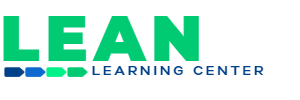It is the end of a hectic month for your production team and you are finally sitting down to review the productivity numbers. At the end of each day, your production team is supposed to log five KPIs, including number of products produced and issues that occurred during the production process. You notice that while these two indicators were well documented, the other three indicators were not.
This is surprisingly common. Many companies believe that the simple act of putting systems and strategies in place is enough. They feel confident that these systems will do their job and ensure productivity without ever analyzing the system’s effectiveness.
According to W. Edward’s Deming, 95% of the variation in the performance of a system is caused by the system itself. The other 5% rests with the people in charge of that system.
What are some of the potential reasons for the lack of reporting by your production team? Sure, it could be laziness or forgetfulness on the part of your team. However, it could also be that the expectations were not clearly set, other things were prioritized over the documentation, they were assigned too much work, they experienced a number of interruptions, etc.
As you can see, the system itself holds many more potential pitfalls to productivity than the production team. So, how do you know what is causing the lag in KPI tracking? Unless you are intimately involved with the daily operations of your production team, you may not know the answer to this question.
The key to avoiding these potential issues is to audit the system on a regular basis and then adjust the system based on your discoveries. When is the last time you audited your systems? What steps do you take to help you adjust?
About Lean Learning Center
The Lean Learning Center was founded in 2001 to address the gaps and barriers that are holding back companies from successful and sustainable lean transformation. In addition to the advanced curriculum, the Center has developed a learning environment designed specifically for adult learning utilizing techniques that include discovery simulations, case studies, personal planning, and reflection – ultimately engaging people at a deep and personal level. We bring our unique lean understanding in creative ways to executives, managers, supervisors, change agents and front-line employees.
info@leanlearningcenter.com
Phone: 248-906-8605


